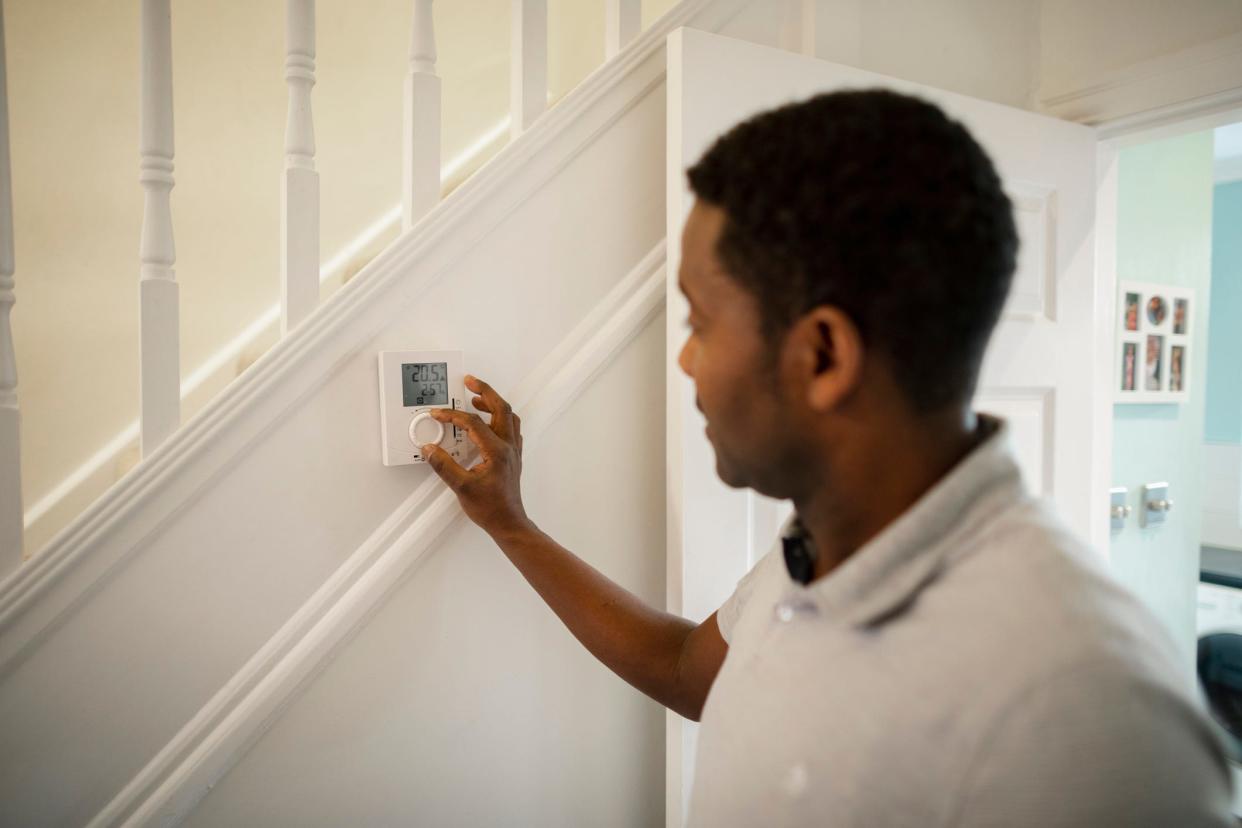Bartlesville residents, here are the best tips to lower your heating bill this winter

Looking for ways to cut your heating cost? Compared to 2021, the U.S. Energy Information Administration forecasts a 10% rise in electricity costs and an almost 40% increase in natural gas costs for 2023.
The EE spoke with Ron Schulburger, owner of AC&H Services, about what Bartlesville residents can do this winter to lower their heating bills.
"The No. 1 thing I tell my customers is changing your air filter," said Schulburger. "Don't buy the cheapest filters either; that will clog your coil and cause more problems later on."
Schulburger recommends filters with about a Minimum Efficiency Reporting Values, or MERV, rating of 11 for the average home, but noted that if you have breathing issues or a doctor recommends a high-rated filter, you should choose what's best for you.
"I see a lot of customers buying a higher rating than they need," said Schulburger. "The higher the rating, the more stress on the furnace; the filter will clog faster, and you will need to replace it more often."
The more airflow you have, the more efficiently your home will be heated. "Customers will close off vents to rooms, and if you close too many, your furnace limit switch will trip," he said.
Schulburger says it's OK to partially close down certain vents in parts of your home that are used less often, but doing that with too many is bad.
"That cold air is still going to leak into the warmer areas," said Schulburger. "It's better to heat the whole house and let your insulation keep the cold away than the uninsulated interior walls."
Homeowners with ceiling fans should switch the fan's direction to take advantage of using them to pull the hot air that rises up.
"If you have nine- or 10-foot ceilings, you will really notice a difference running your ceiling fan to suck that warm air back down," he said.
Double-checking gaps around doors and windows will significantly improve comfort and lower your heating bill. "Anywhere cold air can leak in, it will," Schulburger said. "The most efficient furnace won't be able to keep up if you have gaps around doors and windows."
It is best to have a qualified professional do a checkup on your furnace to troubleshoot any issues homeowners could be having with their heating, he said. They can check for leaks, carbon monoxide and proper airflow.
"Sometimes we find someone's been in the attic, and they bump a duct and don't put it back together right, and you get major leaks that way, too," he added.
For more savings in the attic, it's important to have the correct amount of insulation. For our region, energystar.gov recommends having an R-value between 30-60, which is determined by the thickness of the material and what the insulation is made of.
Regarding what temperature to set the thermostat, that is up to the person's preference, he said. Obviously, the lower you turn it, the more you could save.
"I have customers that crank the heat to 76 [degrees], and I have some that keep it below 70," said Schulburger. "You just don't want to lower it too much when you're away because the system will struggle to get up to the temperature you want when you get back home."
Schulburger recommends a programmable thermostat, that way, you don't leave the house running warmer than it needs to when you are away. But he feels those are most effective if everyone in the home is on a similar schedule.
"Some of these cost money, but in the end, you will save, especially with the cost of gas going up," said Schulburger.
This article originally appeared on Bartlesville Examiner-Enterprise: Best tips for Bartlesville residents to lower heating bill this winter

